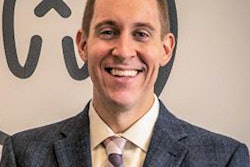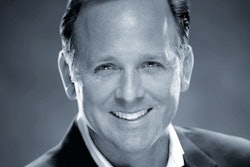
I read an interesting commentary the other day about the American League pennant winners, the Cleveland Indians, from Zack Meisel of Cleveland.com.
 Jay Geier is the president and founder of the Scheduling Institute.
Jay Geier is the president and founder of the Scheduling Institute."This isn't a team that features a handful of superstars who complete most of the heavy lifting. The Indians don't have a choice but to maximize the potential of every inch of their 25-man roster," he wrote. "Everyone is involved. Everyone contributes."
Even though you aren't managing a team of professional athletes, you are managing your team. And your team should be one in which everyone contributes and is involved. One in which everyone is maximizing their potential. So does that vision seem far from reality for you and your practice? Perhaps a bit unrealistic?
Most of the people you hired probably aren't great yet -- but they all have the capability to achieve great things within them. Now, you just need to give them the tools and training they need to unlock it. That's right. It is your job as the owner of your business to leverage what each individual brings to the table to make your team great.
Top 5 qualities
These are the top five qualities of a great team that you need to leverage within your own practice.
1. They accept responsibility
The best teams in the world know that their No. 1 priority is maximizing your time. They want to accept as much responsibility as possible so that they can help you clear off your plate and treat more patients. A great team understands that when you have the time to make more money, the practice grows and prospers. Ultimately, this will pay off for them.
2. They overdeliver
From the second a patient walks into your practice, these team members bring their A-game. They are smiling, friendly, and highly attentive. They put the patient's time and convenience first, even if it means sacrificing their own.
3. They are highly engaged
“Even though you aren't managing a team of professional athletes, you are managing your team.”
An engaged team is one that understands and shares your vision for the practice. The team members create a culture in your practice. They see their work as having an impact on others and are extremely receptive to training, as they understand it benefits them and the practice.
Keep in mind that your team's level of engagement is always lower than your own level of engagement. So if you want to increase your team's engagement, you must first increase yours!
4. They are great leaders and followers
You need to have both natural leaders and those more comfortable following on your team. This appropriate mix is an essential element of a great team. They must collaborate in all their efforts and should work together like the parts of a well-oiled machine. These teams take initiative in creating new solutions to the practice's problems without even being asked.
5. They have great attitudes
Attitude is everything in my book. I will invest regularly in people with great attitudes, and I will quickly remove a team member whose attitude proves to be toxic to the environment, no matter how much they produce. Teams with great attitudes happily accept challenges, take personal ownership of their results, and look for ways to help the entire team improve. They are innovative and ambitious, and they take pride in their work.
I know what you're thinking: This isn't a great team -- it's a dream team. But it can be a reality for you. Your team is your greatest asset. A couple of superstars will only take you so far before they tire of carrying the load for the entire team. It's time to maximize the potential in your team and get the most out of their talents. And if you really want a great team -- one that will significantly affect the success of your practice -- you will need to be able to let go of those who weaken the rest of the group.
How do you do that? Training your team is one of the best ways to identify your high achievers and low producers. The high achievers accept the training as an investment in their professional development. They rise to the occasion. They begin to show you what they're capable of. The low achievers resist training and change, even if it means it will be better for you and the practice. They show you that they may not be the best fit for your practice and will likely be happier elsewhere.
Jay Geier is the founder and owner of the Scheduling Institute, a dental training and practice consulting company. Visit www.5starchallenge.com to find out how to transform your practice and be more successful. You can also learn more about creating your own dream team at their Secrets to Building a Great Team event in December in Atlanta at www.EventsForDoctors.com.
The comments and observations expressed herein do not necessarily reflect the opinions of DrBicuspid.com, nor should they be construed as an endorsement or admonishment of any particular idea, vendor, or organization.



















